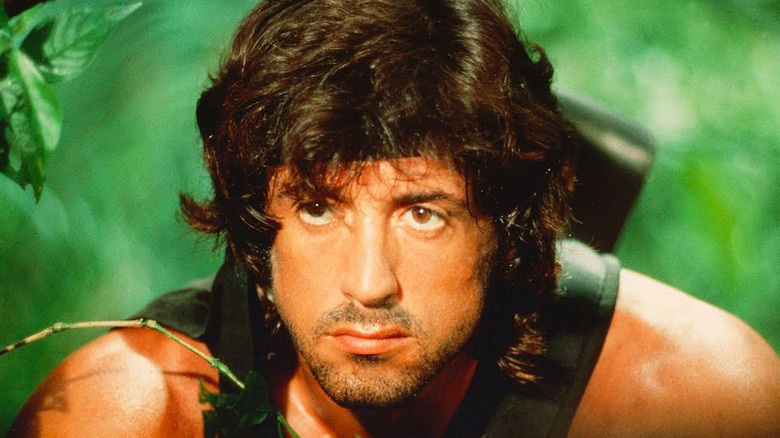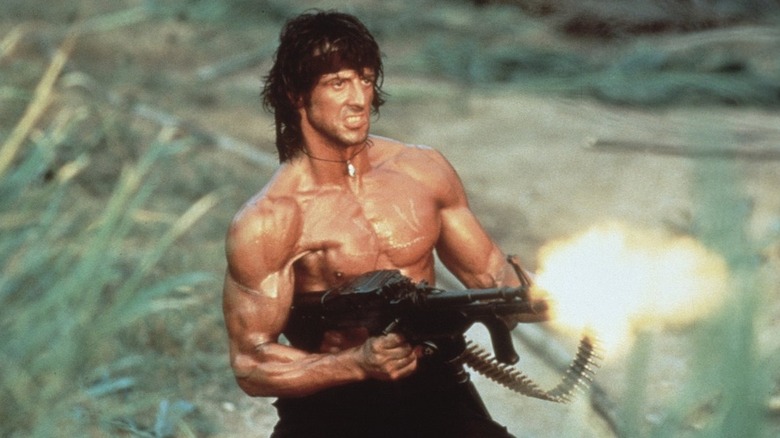Why Ted Kotcheff Wanted Nothing To Do With The Rambo Sequels
John Rambo is a character who has permeated pop culture in more ways than one. He's become a stand-in for the stereotypical '80s action hero. He's a glistening, muscle-bound killer who will happily take out a village full of unspecific foreign stereotypes with a bazooka. For people who have never seen "First Blood," Rambo is just another stupid action hero.
But "First Blood" just isn't that type of movie. It's a slower, bleaker film, about a Vietnam veteran who returns home to a country that doesn't want him and refuses to help him. It's an anti-war movie beyond all else, and this was very much by design.
Of course, like with everything in Hollywood, success creatively corrupted the franchise. The second movie, "Rambo: First Blood Part II," was a far more action-packed affair, with Rambo going on a mission to save a bunch of POWs in Vietnam. Along the way, he shoots and blows up just about everything and everyone he comes across.
It was this second film that first positioned Rambo as an action badass. While Sylvester Stallone says he was embarrassed to see Rambo action figures popping up all over the place, and people glorifying Rambo's combat experience, it clearly didn't bother him much, as he starred in three more Rambo films full of shooting and violence, none of which seem to understand the original character.
It's not surprising that the director of "First Blood," Ted Kotcheff, never returned to the franchise. They corrupted his creative vision, and, according to an interview, offended his sensibilities.
Artistic integrity
In the interview with Diabolique magazine, Kotcheff explains why not making "First Blood" an action movie was more than just a creative choice.
"What I'm really trying to say is that all my family were surrounded by violence: rebellion against the Turks, or they were being tortured by the Turks, or the Communists were torturing them. And so I grew up hating violence — all kinds of violence — and that's why the character of Rambo in 'First Blood' doesn't want to kill anyone when he comes back from Vietnam. He hates violence. He's not going to come back to America to perpetrate violence. He's just so tired of seeing his friends killed and Vietnamese women killed accidentally, so that detestation of violence permeates the whole of 'First Blood,' because of me."
This philosophy is clearly reflected in "First Blood," which is a principled and moralistic movie. It makes sense that Kotcheff turned down offers to work on the second, very different Rambo film, which he spoke about in an interview with Filmmaker Magazine.
"I didn't want to do the sequels. They offered me the first sequel and after I read the script I said, 'In the first film he doesn't kill anybody. In this film he kills seventy-four people.' It seemed to be celebrating the Vietnam War, which I thought was one of the stupidest wars in history. 55,000 young Americans died and so many veterans committed suicide. I couldn't turn myself inside out like that and make that kind of picture. Of course, I could have been a rich man today – that sequel made $300 million."
Kotcheff stood by his principles and, while he lost a lot of money doing it, he can take comfort that he made the only truly worthwhile Rambo film.

